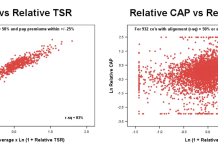The FTSE 100 (Financial Times Stock Exchange 100), the UK’s leading stock index, reached a historic milestone today, hitting an all-time high of 8,076 points – What does this mean?
This milestone marks a significant jump from its previous peak of 8,047 in February 2023, highlighting continued positiveness in the British stock market. The index’s rise has been propelled by a combination of factors, including expectations of interest rate cuts and easing geopolitical tensions.
Anticipation of interest rate reductions by the Bank of England
The FTSE 100 was created 40 years ago and has been rising steadily in recent weeks amid hopes that the Bank of England will cut interest rates soon from their level of 5.25%.
City investors are now pricing in one or potentially two rate cuts within the year, with the first cut fully expected as early as August. The bank’s deputy governor, Sir Dave Ramsden, recently indicated that UK inflation could trend lower over the next few years, potentially staying close to the bank’s 2% target rate. Currently, headline inflation stands at 3.2%, down from previous levels.
UK inflation could trend lower over the next few years
A pivotal factor behind the FTSE 100’s surge has been the decline of the pound against major currencies, particularly the US dollar. The pound’s decline, trading at its lowest level since November at around $1.2340, has boosted the share prices of multinational companies listed on the London Stock Exchange.
These firms benefit from the translation of their dollar-denominated earnings into sterling, amplifying their value in local terms.
The market received a boost from geopolitical developments, with tensions in the Middle East. The lack of further escalations following recent events, including Israel’s strike on Isfahan, has contributed to a more positive outlook among investors.
Gainers on the FTSE 100
Noteworthy gainers on the FTSE 100 today include Associated British Foods, owner of Primark, witnessing a 9% surge, JD Sports up by 6%, and Ocado rising by 5%.
Despite this record-setting performance, the FTSE 100’s year-to-date gains of approximately 4% still lag behind other European indices. France’s Cac and Germany’s Dax, for example, have seen increases of 6.5% in 2024.
Key sectors driving the index’s success this year include engineering, banking, and defence. Rolls-Royce has appeared as a top performer with a 37% rise in its share value as the company rebounded strongly from pandemic setbacks.
Banks like NatWest and Barclays have experienced gains of 29% and 25%
The FTSE 100’s growth
The FTSE 100, established on January 3, 1984, has grown significantly over the years, with a current market capitalisation approaching £2 trillion. This market strength shows the diverse representation within the index, containing a range of industries from finance and mining to retail, airlines, and construction.











